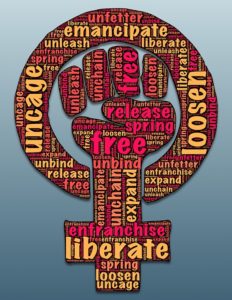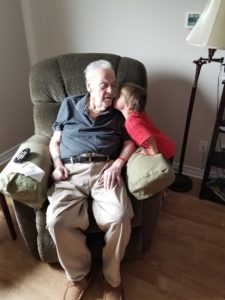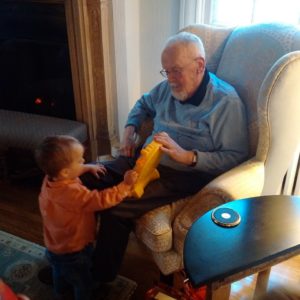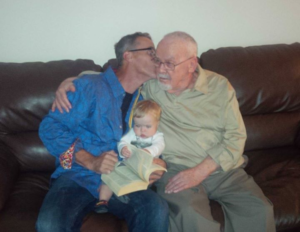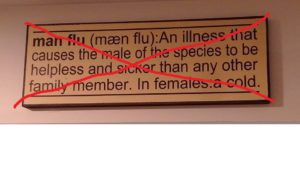FEMINISM MAGNIFIED PART ONE
TWIGGY: A LOVE STORY
THE GREASE
Recently North America has been held hostage by yet another scandalous media circus about gender. This is the latest in a series of spats pitting the left against the right, elites against populists, and importantly, a small segment of feminists against all men.
I’d like to make a couple of points about this, namely to say the attention is not the reality, sort of the squeaky wheel gets the grease. And secondly, feminism has been magnified in scope from decent beginnings. My expertise is only as a witness to the era.
I was born in 1957. Not a particularly aware child, I began reading newspapers early. By the time I left home in the early 1970s, I wasn’t savvy about survival, but was well-exposed to adult issues.
Government, women, war and nuclear annihilation, jobs and the economy, the civil rights movement and finally, women’s liberation, were generally discussed. As Canada opened, immigration became a hot topic, but by the time that happened I was an adult myself.
I had worked from the age of ten or so, first at newspapers and then at lawns and snow shoveling, then adult jobs, which meant I had older people around sounding off on everything. Being a polite kid, I made for a good listener.
Absorbing the moods and frustrations of the times, I still remember the sense I got from people in those days. It’s not much different from stuff folks talk of today.
At 16, I hung with a group of guys and we all worked and sold dope and partied the rest of the time. My two-bedroom place at one address or another was often overrun with young teenage runaways who would move in and cook and clean for a place to stay.
Almost my whole sixteenth year was spent living with a handful of wenches and my part-time roommate. Mike was his name, and he fought a lot with his dad, so he kept a place with me as refuge but often went home for a week or more.
If you showed the slightest interest in one of those gals during the day, she’d be climbing under your covers that night. The pill had made a big difference by this time; all the girls I knew were on it.
THE DAME
The next time I was tangentially involved in the women’s rights movement was when Twiggy moved in. Only, she was no teenager.
She was a mother of two children and had already hit the wall. That makes her over 30 in my estimation. I lived in a sprawling two-bedroom on Marier Street in Vanier, in those days a predominantly French enclave East of Ottawa’s Lowertown.
Twiggy isn’t her real name. In fact, I don’t even know her name now, despite spending those weeks with her one summer when I was sixteen.
She and her husband were Scientologists, and had a house in Overbrook, the neighbourhood just South of Vanier. It was my friend Mickey who brought her over. Mickey was a wild man. He always had wheels and he drove drunk like everyone else in those days.
THE INTERLUDE
I remember learning the car-chase dodge from Mickey. It was coming back from Hull, which is just over the bridge on the Quebec side and where you could drink until 3 in the morning and buy quarts of beer from corner stores at any age.
Somehow, he got into an imagined beef with a car in front who braked in a fashion Mickey didn’t appreciate on Rideau Street, the main road into Vanier from downtown.
Right near Charlotte Avenue, Mick pulls out and passes these guys and nips in front of them at the lights. Then he’s out of the car in a flash with steel nunchuks from under his seat and is swinging away at the car behind us before any of us can react.
He takes out both their headlights and smashed off their sideview mirror, and then cracks the fuck out of their windshield while the guys inside cower, too afraid to come out and meet this madman. We all got out, but it happened so fast we just watched. Then, Mick jumps back in and we’re off as the light turns green, leaving their car all fucked up.
Problem was a cab driver saw it all and was on our tail with the radio mic in his hand. We speed as he chased us all through an area just over the Montreal Road bridge called Eastview. Mick was having trouble shaking the cab and knew it would only be a matter of time for cops to show up in numbers.
So, he floored it on one block to put a bit of distance between him and the cab driver, turned a left at the top of the block at speed and another left onto the next block without hardly slowing down, and quickly pulled into the second or third driveway and shut off the engine and lights. “Everybody down!” he shouted.
Sitting in the front seat, I leaned back and allowed myself to slink into the leg room area, just catching the cab whizzing by the end of the block a few doors away. Mick rolled his window down and waited until he heard the other car’s engine rev on the next block, then started up and retraced his step, going right and zig zagging out of the area in the opposite direction.
It was like something right out of the movies, but it worked. Eastview and Vanier streets were like a rat’s maze, but we knew them well. In no time, we’d circled wide and had the car parked behind my place.
THE PROBLEM
Anyway, back to Mickey and Twiggy. He knew her somehow, and knew of her situation. He wasn’t fucking her either, they were more friends or neighbours. All I remember is him showing up and asking Mike if she could stay there temporarily. Mike checked with me; we rarely turned down women.
We already had two wonderful gals staying there, Bev and Janet, who had followed us from our last place around the corner on Laval Street. I was temporarily out of work I think, so spent a lot of time at the apartment, sometimes banging both in the same day.
I realize now Mickey called our guest Twiggy for a reason. She was beautiful, with jet black hair cut very short in the style of mom’s have made their children a priority. She was short, maybe 5’3” and curvy enough, good hip to waist ratio. Hence, Mickey was being kind.
I remember her saying something to him, with a slightly embarrassed look on her face and Mickey responding with something like, “Who you kidding? You’re like… Twiggy.” And that’s how he introduced her, and, catching on, that’s what I called her. The real Twiggy was a top model in the 1960, thin and still popular in the 1970s.
I spent at least two weeks with our guest, day and night. Of course, other people came by and bought hash, and we all cooked and cleaned and slept and banged. But most of my attention was on Twiggy.
She had jet-black hair eyes to match, with those endearing crow’s feet women get around the eyes. When she smiled, her lashes and crow’s feet and the glint in her eyes combined to make them shine like diamonds. And her smile, teeth white and wide. I would have followed that smile anywhere and done anything to see it again.
I had a crush on her. And I flirted with her. She laughed at the attention and would explain why it would never work out. I’d counter with an objection answer, selling myself for a song. And she was so sweet to me, and all I wanted to do was make her happy. We talked, a lot. We spoke intimately in a way not possible with the slew of young gals I’d been hanging around with.
She told me her husband had got her into Scientology. I remember reading L. Ron Hubbard’s book back then. There were people handing them out for free. I’d read more than a hundred sci-fi books before leaving home and so this was up my alley. I found it disappointing and wondered how anyone could buy into the premises he proposed.
But not Twiggy and her husband. She said his big thing was becoming “clear,” that is, having divulged every little secret, every little fantasy or sin or bad thought that has ever crossed your mind. Clear is clear. This was the key to the Scientologist’s freedom, to be rid of the tyranny of guilt and distortion, to lose the need for lies. To bare it all.
Only, he didn’t like what she had to say and used it to question their marriage. She protested, and demanded he pull away from Scientology—for the sake of her and their two children, for all them—refusing to continue herself.
That was her downfall. It was his excuse to begin a new relationship with one of the faithful and declare her, for all intents and purposes, and ex-communicated soul. They went to court and used the information told to the flock as proof of her inadequacy as a parent and her failure as a wife. He took her children. She lost them.
It hurts a man to lose contact with his children, I know this now. But I’m 60 and have a lifetime of tales from men to inform me. But to take a woman’s children, from a loving mother who cares and nurtures and is attentive and gave them birth?
At 16, already I knew this to be against the natural order of things. I knew then it was as egregious as it is now.
Her pain was immense. It was all-encompassing. It doubled her over in despair. It took this beautiful, vivacious ray of sunshine and darkened her like a night of clouds. She sought to bear it alone, to not share this burden with anyone else lest it be misunderstood. Lest it compound her shame. I stood by her the best I could but more, it was that I could not help her. I wanted to act. She wouldn’t let me..
But I felt her pain like a man programmed to protect should. I wanted to exact revenge and make her whole. My every cell burned with desire to serve under her in pursuit of justice. I would have made her my main mission and righteously stopped at nothing to restore her peace; anything to prevent her smile and diamond eyes from going dim.
But it was not to be. In those days, adultery could lose a woman access to her children. A man with a stable home and stand-in wife could apparently take a woman’s children with the right lawyer and judge.
The law was unfair. It seemed so to me.
THE CHANGE
When I think back to those times of the women’s movement, I think of Twiggy. We needed laws to recognize greater equality between us. Like most things that are settled by justice, change takes time, but we usually get there. As more women entered the workforce, their influence grew, and change came.
Did we need a full-fledged women’s rights organization to achieve these wholesale changes as we moved to equality? It’s anyone’s guess but I don’t think we did, certainly not past the “women’s liberation” stage of things. But that’s just my impression. I’ll leave the sociologists and journalists to argue the merits of each side better than I can.
Like most social upheavals, you get a pendulum swing that overcompensates for one group at the cost to another. It’s not enough to say the bigger the injustice the greater the swing, because the civil right movement never benefitted blacks this way. Cultures in the west often lurch to and fro but the women’s movement lurched far.
Now we see men being left behind in family court in a way that is not dissimilar to the extreme prejudice found 50 years ago against women in Twiggy’s circumstances. Comeuppance? Come on.
Why, I remember the neighbourhood guys telling me a man was legally allowed to rape his wife when I was a kid. I was probably twelve or so. Couldn’t be charged for it. Rape was only considered an offense outside of marriage after 1983. Legal stuff. Important legal stuff.
I say all this to underline the necessity of change in my lifetime. Like a lot of things which begin with good intentions and do some good, intersectionality is a another example, feminism has morphed into a destructive force. It’s all but destroyed conventional marriage and it’s being exported across the world. Look no further than the hilarious, “Do it for Denmark,” campaign begging men to impregnate women younger and more often lest the population disappear.
THE REALISM
Fact is, even back then, the Twiggy’s were few and far between. Tragic as her case was, and as moved by it as I was and am, it was far from the norm. Most people got along and lived out their lives with the usual ups and downs as successfully or unsuccessfully as they could. Gender norms and the rest of it never had much to do with it.
Men and women have always banded together to find ways to support each other in life, to carve out an existence from the raw materials of culture and environment. It’s important to remember this has not changed. We still have wives and girlfriends and mothers and sisters, and we still consult and cooperate with them as we always have.
We are still likely to pair-bond and create a life with a person of the opposite sex, as we have for tens of thousands of years. It took a long time for women to domesticate men into caring for them and their young, feminism is ruining a good thing for all, especially for mothers of children.
It reminds me of the Lindy effect Nicholas Taleb talks about in one of his books: a book in print for a hundred years will most certainly still be in print in one hundred more. A book in print for just a few years has almost no chance of still being around a century from now.
I’ll bet on Mother Nature. Men and women will keep doing their thing, and for the most part with nothing but the best of intentions on both sides following prescribed paths set down long ago. The shrill minority you hear in the media does not speak for most women.
It might pique some women’s collective interest at times and to a degree. But feminism’s anger is not how women live with men—because men and women don’t live that way and last. It’s unsustainable because it means us versus them, and that’s not living at all. It’s not love.
THE GOODBYE
I realize now Twiggy was waiting for a cheque. She never told me this but I’m sure that’s what held up her departure for she knew she was leaving soon as something was settled. I suppose it took two weeks or so, maybe three on the outside.
I lost the battle to become her new knight in shining armour. Perhaps I was just bullshitting myself, enamored as I was by her intelligence and maturity, and her smile and eyes, and her kindness towards me.
On the morning she left, she pulled me to her. We’d never made love and frankly, it was not a dominant thought of mine that we should.
It was with some surprise that I allowed her to take my hand and bring me to her mattress on the floor, covering us with her sleeping bag. There she was naked and smiling. Her skin was softer and fragile than any woman’s body I had ever touched. She was warm and tender, and insisted I fuck her before she left.
I remember thinking, “You don’t have to do this,” but she went about it as if she was paying me off somehow. I knew to turn her down it might hurt her—the last thing I wanted. I’d never pursued her body, it was her wisdom, her encouragement, and her vulnerability which matched us. It is men who are the romantics after all. And boys.
She was hitchhiking out west on her own. I wanted to come with her, to make sure she was safe. She laughed at me and caressed my cheek, saying she’d get better rides without a boyfriend. I knew she was right. Half the people I knew hitchhiked across the country.
I walked her over to Beechwood Avenue. There I sat on the steps of historic St Charles Church, as she went across to the north side of the street with her giant backpack and sleeping bag rolled up and laced on in traveler’s fashion. She stuck her thumb out and for a few cars, each time a group passed she’d smile at me and wave.
I waited for no more than 10 minutes, tears streaming down my face but too far away for her to see, waving back and forth. Only then could I express the sorrow I felt for her, out of her sight. I was proof where there is one man, albeit not much more than a boy, who would devote himself to her, there would be more.
And then, with one final wave and a dazzling smile I can still see in my mind’s eye, she was gone.
She acts as my fading avatar for women’s rights.
Gone from my life, impossible to forget.
Stay powerful,
Christopher K Wallace
©ckwallace, 2018, all rights reserved
